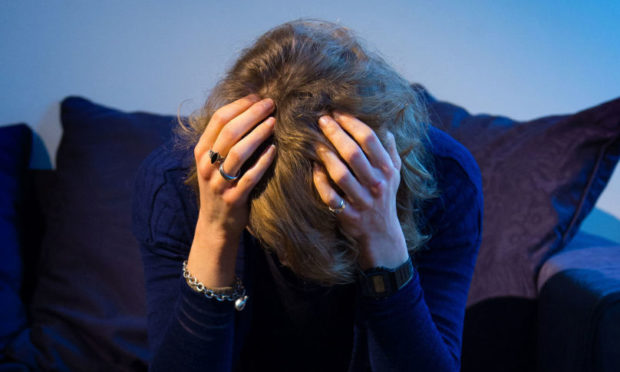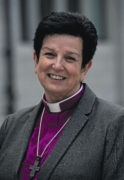Well I never expected to have to do what I did on Tuesday – tell people that they cannot come to a church service next Sunday.
On Tuesday I cancelled all public worship in the churches in my diocese for the foreseeable future. The reason is obvious, the social distancing measures required by the government mean that it is simply unsafe for people to gather in church for worship. I made this decision alongside my brother bishops in the Scottish Episcopal Church, because something like this requires collective will and agreement.
After the announcement was made, a good number of people got in touch with me. The vast majority were relieved. On the one hand they are faithful and pious people. Some have been to church every week of their long lives.
The thought of not attending is terrible, but so too is the thought that either they, or someone they know, might catch Covid-19 and lose their life. They were caught in a dilemma, to attend church or to stay at home. My announcement removed the responsibility for the decision from individuals. They are absolved, they can say their prayers at home.
So far so good then. But we have an unknown number of weeks and months ahead of us. What might be a relief on the first Sunday, might be a frustration by the fourth, and making people very angry by the 10th.
What I have been noticing is that when it comes to the social consequences of living with this virus, the emotions that follow are varied and can be very strong.
I know lots of very sensible people who have been accepting of how things had to be as the virus spread into Scotland. We have all become experts in washing our hands (what were we up to before?), at not shaking hands, at keeping our distance. I changed the time of my journey to work to take a less crowded bus. These were small changes but we could live with them.
And then, something would happen which would concentrate all of the upset and anger. This might have been the cancelling of live sport, or the end of public concerts, or not being able to fly to be with a loved one in another part of the world for a special event. All of a sudden this was both serious and very upsetting.
So it should not surprise us if we see some big emotions being played out in public. For example, someone being very angry over what seems like nothing much in a public place. For each of us there is a “last straw”, and then we pop. We will see lots of people “popping” in the weeks to come.
At the heart of the common experience that we are sharing is loss. We are all losing something. We began by losing small choices and freedoms, and then bigger ones. We, who are so used to making our own decisions and doing what we want when we want, are now being directed and ordered.
We will feel this loss of our independence more and more. On the surface we will put up with this because we know we are trying to prevent a much greater loss, the loss of life of vulnerable people.
Those who work with bereavement as part of their occupations – for example priests and bishops – know that the emotions that follow loss can be all-consuming. When someone, or something, significant is lost then a person can go into shock. For a time everything is numb and strange.
We know that a common emotion around loss is grief, a deep sadness related to that which has gone. We might be surprised by what it is that makes us sad, what is really missed in the experience of living with this virus.
It is common following loss for people to be angry, often unreasonably angry, without any proportion to what can be seen.
Anger, and angry people, can be frightening if you are on the receiving end. We might find ourselves having to talk a good number of people down from the ceiling, so to speak.
We will be experiencing these things more restricted to our homes than we have ever been. Those who found it difficult to be at home for two days with family at Christmas may have weeks of confinement with relatives to come. So we should expect that those already suffering from depression and other mental health issues may have a tricky time ahead.
And through all this, we will have lots of time to look and think, and wonder what the world is coming to. For some this in itself will be a very fearful time.
So – let’s get ready for the big emotions, and not be frightened by them. All this is normal human reaction, and part of what makes us so resilient.
And let’s wish peace to all, and be as patient as we can be.
The Rt Rev Anne Dyer is Episcopalian Bishop of Aberdeen and Orkney and Scotland’s first female bishop

